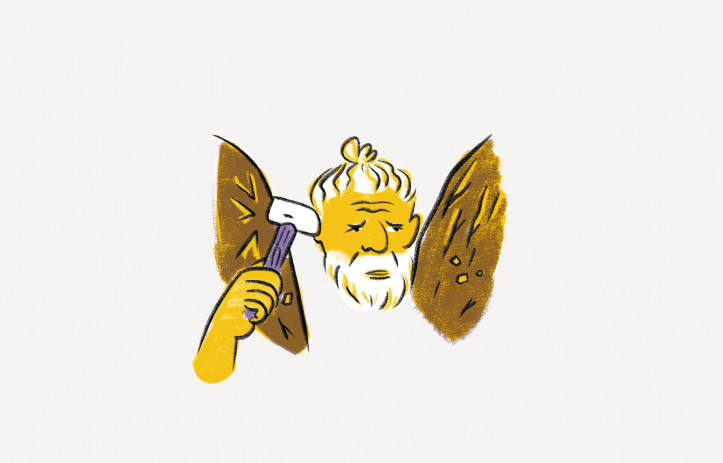
There were and still are among us people who raise compassion and empathy to the highest level. And that is love – unconditional love for one’s neighbour, a love to which one devotes their entire life.
DASHRATH MANJHI – the tamer of the mountain
A man’s despair after losing his beloved can push him either towards depravity or magnitude. In an otherwise quite fictitious legend, the Wallachian Prince Vlad III, following his wife’s suicide, is transformed into a monster drinking human blood – or at least this is how Francis Ford Coppola re-imagined, a century later, the legend of Dracula written down at the end of the 19th century by Bram Stoker. This is an example of depravity. Meanwhile, the great ruler of the Muslim empire in India, Shah Jahan erected one of the most beautiful buildings in the world: the Taj Mahal, the temple of love, in memory of his prematurely deceased beloved wife Mumtaz Mahal.

Much more recently, the story of the widower of Bihar in north-eastern India proves that one doesn’t need to be a ruler to move mountains for love. Dashrath Manjhi was a poor man born in the lowest caste. Following the passing of his beloved wife, he personally carved a tunnel in the mountain that caused her death… Literally, not figuratively.
The village where they lived was cut off from the outside world by the Gehlour hills. On that unlucky day, Falguni Devi was walking through the hills to bring dinner to her husband when she fell and injured herself. The nearest hospital was in a town on the other side of the mountain, and the only way to get there was to drive 60 kilometres around the mountain. She died before they got to the hospital.
Dashrath Manjhi sold three goats, and with the proceeds bought a hammer and a chisel. For the next 22 years, from 1960 to 1982 he carved through the ridge to create a path. The locals first took him for a lunatic, but after a few years began to bring him food and water, as well as new hammers and chisels. Dashrath singlehandedly created a 110-metre long path, in places as wide as 9 metres. The journey from the village to the nearest hospital, school and market was cut from 55 to 15 kilometres. Thanks to his feat, Manjhi was nicknamed ‘Mountain Man’. The authorities, who had stubbornly refused to help him throughout his years of tireless work, appreciated him only after his death.
Unlike the legend of Prince Dracula, the tale of Mountain








